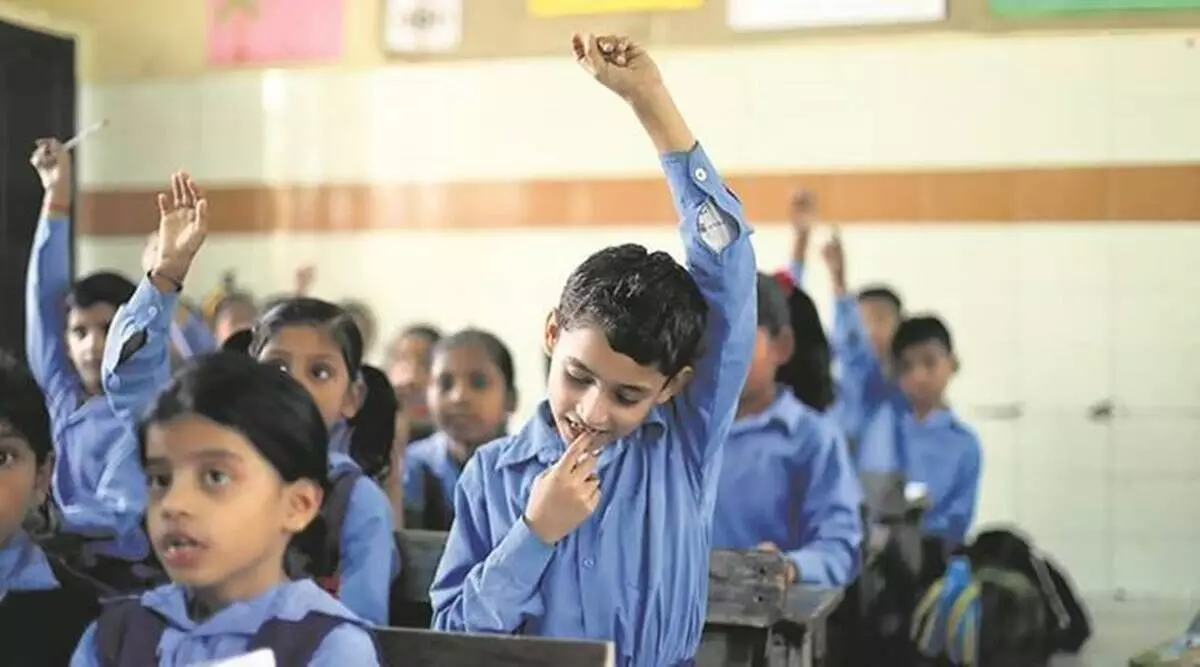
DoE to restructure school education system as part of new NEP next year, min age for class 1 to rise in Delhi schools
text_fieldsThe school students in Delhi may have to study three classes instead of the existing two, before they are eligible for class 1, starting from the next academic session.
This comes as the Directorate of Education (DoE) expressed its intention to restructure the school education system as envisioned in the National Education Policy (NEP)-2020, starting with the foundation stage covering ages 3 to 8 years, from the academic session 2024-25.
The DoE has invited suggestions in this regard from various stakeholders, including teachers, parents, students, school management committees, educational institutions, school associations, professionals, subject experts, scholars and the general public to make the process “inclusive and participative”.
“National Education Policy 2020 aims at transforming the whole education system… In the context of school education, NEP 2020 recommends shifting from 10+2 structure to 5+3+3+4 covering ages 3-18 yrs and emphasises upon developmental perspectives suggesting curricular and pedagogical shifts at different stages — foundational, preparatory, middle and secondary”, said an official statement by DoE on Monday.
The foundational level includes three years of preschool/ Balvatika/Anganwadi schooling for students between ages three and six years, and two years, class 1 and 2 for students between the age groups of six and eight.
The preparatory level includes classes 3 to 5 for students between 8 and 11 years of age whereas middle and secondary levels include classes between 6 and 8, and 9 to 12 for students aged 11-14 years and 14-18 years, respectively.
Under the new curricular structure as per NEP, admissions will start at the age of 3+ years in the lowermost class and will proceed to the next class at the age of 4+ years and further to the next higher class at the age of 5+ years.
After three years of schooling, students will proceed to Class 1 at the age of 6+ years. In the present structure, a student is eligible for Class 1 at the age of five, right after nursery and kindergarten.
According to the teachers, it was important to standardise schooling age among students across the country, but financial and infrastructural implications of the addition of one more standard before class 1 need to be assessed.
“Standardisation is important otherwise, in cases of transfer and other things, children suffer at times. One country should have one age structure. (However) while adding another class at pre-school level, the question arises about infrastructure. The rooms, the teachers etc. How viable will it be? We will have to see this once the order comes. Not all schools have extra rooms to accommodate additional sections,” said Minakshi Kushwaha, Principal of Birla Niketan, Pushp Vihar, Delhi, as quoted by The Indian Express.
“NEP 2020 talks about skill development, vocational subjects, carpentry, sewing etc and all these require extra rooms… teachers, outdoor spaces… Where do our schools have buildings to accommodate all this? In terms of logistics also, we have a restructure which has to be approved by the DoE every year. We can’t source material without approvals”, said Suruchi Gandhi, Principal of Bal Bharti Public School, stating that minimum age for starting school needed to be four years and not three.























